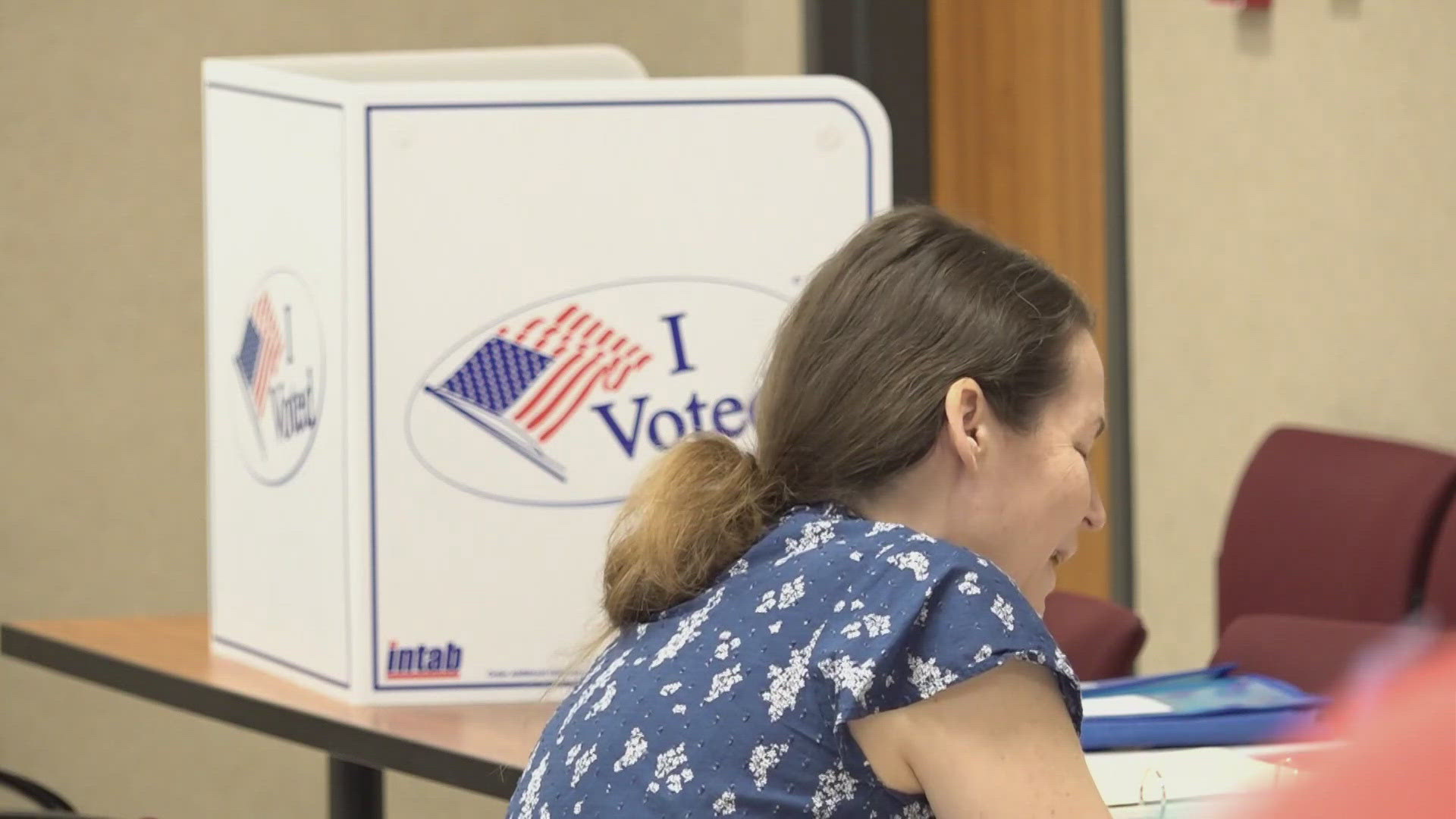NASHVILLE, Tenn. — A state lawmaker from Maryville introduced a bill that would create a process for Tennesseans to formally declare party affiliation ahead of elections after a lawsuit was dismissed over state laws requiring signs to be posted at polling places telling voters they needed to be "bona fide" party members.
Currently, voters are not required to register with a party to vote in a primary election in Tennessee. Instead, they just need to ask for either a Republican or Democrat ballot at their polling location. HB 1616, introduced by Rep. Bryan Richey (R - Maryville), would let voters choose an affiliation with a political party on voter registration applications.
"Currently all voters in the state of Tennessee are an unaffiliated voter. Should this bill end up becoming law, it will provide the tool or the avenue for myself to declare that I want to be a Republican voter," said Richey, during a committee meeting.
Voters would also be allowed to be designated as "unaffiliated" voters. County election commissions would then need to record voters' party affiliations, or unaffiliated designations, as part of voters' permanent registration records.
The bill would also let qualified voters change their registration at practically any time election offices are open, except for up to 29 days before an election.
The proposal could also bolster the earlier laws that required signs placed at polling locations telling voters they needed to be "bona fide" party members to vote in primary elections. Effectively, voters may need to be formally affiliated with a party to vote in primary elections or have an "unaffiliated" designation.
Voters could also vote in any party's primary election if it is the first primary they participate in after the bill goes into effect. After voting in that election, voter affiliations and designations would need to be added to their permanent record.
The Senate version of the bill will be discussed in the State and Local Government Committee on March 27. It was placed behind the budget in the House Finance, Ways and Means Subcommittee because it has a cost associated with it. The bill's fiscal note estimated it would increase county expenses by a total of around $103,100 next fiscal year, and would increase state expenses by around $40,000.
It was amended to an effective date of July 1, 2025.

